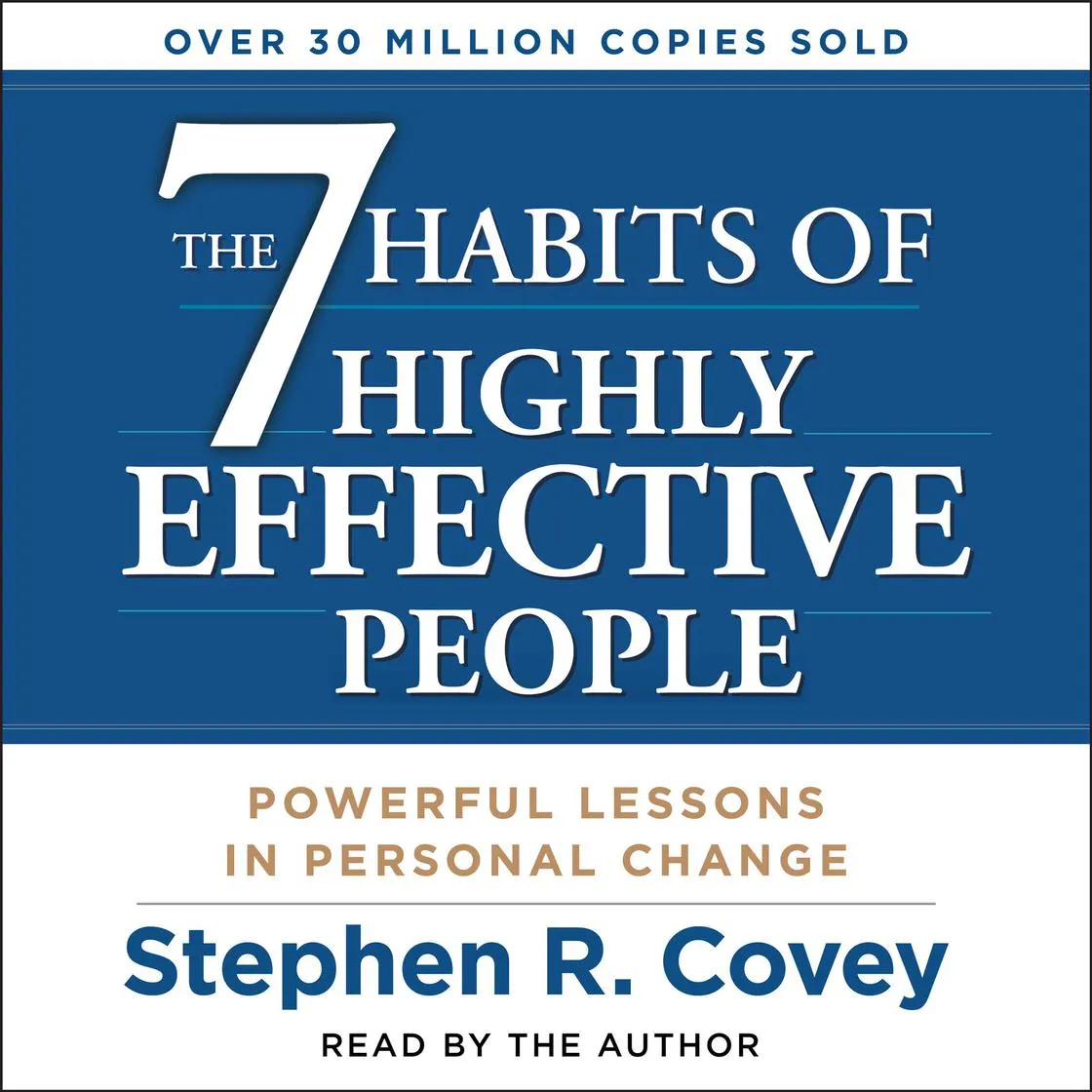
"The 7 Habits of Highly Effective People" by Stephen R. Covey is a groundbreaking self-help book that has transformed countless lives since its publication in 1989. Covey's book is based on the premise that true success comes from aligning one's actions with timeless principles of effectiveness. Through the exploration of seven key habits, Covey provides readers with a framework for personal and professional growth, emphasizing principles such as proactivity, prioritization, and synergy.
The book begins with an introduction that sets the stage for Covey's exploration of the seven habits. Covey introduces the concept of the "character ethic" versus the "personality ethic," arguing that while the personality ethic focuses on outward behavior and techniques, the character ethic is rooted in fundamental principles that govern human effectiveness. Covey asserts that true success and fulfillment can only be achieved by cultivating character and aligning one's life with these principles.
The first three habits focus on personal effectiveness and are collectively referred to as the "Private Victory." The first habit, "Be Proactive," emphasizes taking responsibility for one's own actions and choices rather than blaming external circumstances. Covey encourages readers to recognize that they have the power to choose their responses to any situation, thereby empowering them to take control of their lives.
The second habit, "Begin with the End in Mind," emphasizes the importance of setting clear goals and envisioning the desired outcomes before taking action. Covey encourages readers to clarify their values and principles and to create a personal mission statement that guides their decisions and actions.
The third habit, "Put First Things First," focuses on time management and prioritization. Covey introduces the concept of the "Time Management Matrix," which categorizes tasks based on their urgency and importance. He encourages readers to prioritize activities that are important but not urgent, as these are often the ones that contribute most significantly to long-term success and fulfillment.
The next three habits focus on interpersonal effectiveness and are referred to as the "Public Victory." The fourth habit, "Think Win-Win," emphasizes a mindset of mutual benefit and collaboration. Covey argues that true success comes from seeking mutually beneficial solutions and building positive relationships based on trust and cooperation.
The fifth habit, "Seek First to Understand, Then to Be Understood," emphasizes the importance of empathetic listening and effective communication. Covey encourages readers to strive to understand others deeply before seeking to be understood, recognizing that true communication requires both speaking and listening with empathy.
The sixth habit, "Synergize," emphasizes the power of teamwork and collaboration. Covey argues that by valuing and leveraging the differences among individuals, teams can achieve results that are greater than the sum of their parts. He encourages readers to embrace diversity and to seek out synergistic relationships in all aspects of their lives.
The seventh habit, "Sharpen the Saw," focuses on self-renewal and continuous improvement. Covey uses the metaphor of a saw that becomes dull with use, emphasizing the importance of taking time to rest, recharge, and invest in personal growth. He encourages readers to balance their physical, mental, emotional, and spiritual dimensions and to engage in activities that nourish and renew each aspect of their being.
Throughout the book, Covey illustrates each habit with real-life examples and practical exercises designed to help readers integrate the principles into their daily lives. He emphasizes that the seven habits are not a set of quick fixes but rather a lifelong journey of growth and development.
In addition to the seven habits, Covey also introduces the concept of the "maturity continuum," which describes the progression from dependence to independence to interdependence. He argues that true effectiveness comes from achieving interdependence, where individuals are able to work collaboratively and synergistically with others while maintaining their own autonomy and integrity.
Overall, "The 7 Habits of Highly Effective People" offers a comprehensive roadmap for personal and professional growth, providing readers with timeless principles and practical strategies for achieving success and fulfillment in all areas of life. Covey's holistic approach to effectiveness has made this book a timeless classic that continues to inspire and empower readers around the world.